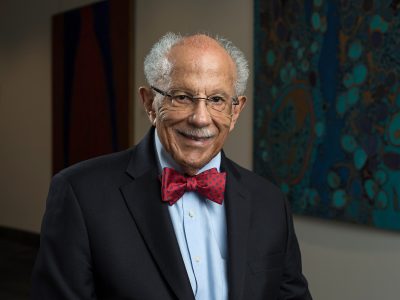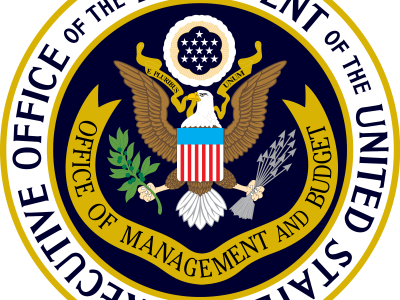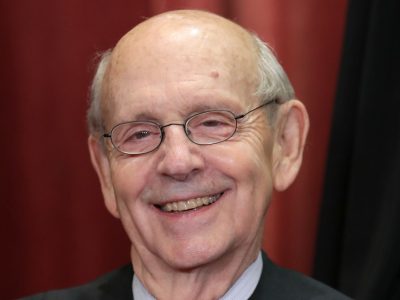Climate Change and Black History
Some important people in the climate arena are Black. But there are far too few of them.
Since this is Black History Month, I thought it would be appropriate to talk about some of the prominent contributions by Blacks to understanding and addressing climate change. Blacks are badly underrepresented in STEM fields such as atmospheric science and in environmental groups, but there are some important exceptions.(STEM stands for ‘Science, Technology, Engineering, and Math.’) I wanted to talk about some of those figures. Dr. Warren Washington is a long-tim...
CONTINUE READINGWhich Front Runner Would Be Better for the Environment?
The three front runners have track records, but they’re not easy to interpret.
Currently, the press seems to view Judges Michelle Childs, Ketanji Brown Jackson, and Leondra Kruger as the front runners to replace Breyer. That may shift over the next month, but it seems worthwhile to give these three a closer look. They’ve all decided environmental cases while on the bench. I assume most readers don’t want to see them, but I’ve listed citations for the cases at the end. Here’s what we know at this point about these judges. Michelle Childs....
CONTINUE READINGWetlands, the Clean Water Act & the Supreme Court: the Sacketts Return to Washington
Justices Grant Review (Again) in the Sacketts' Longstanding Wetlands Battle With the Government
This week the U.S. Supreme Court agreed to hear the case of Sackett v. USEPA, No. 21-454, an important appeal involving the scope of federal authority to regulate wetlands under the Clean Water Act. If the Sackett litigation sounds familiar, it should: the case has been pending for well over a decade, and this is the Sacketts' second trip to the Supreme Court in that very same lawsuit. Earlier this month, Legal Planet colleague Dan Farber wrote a ty...
CONTINUE READINGThe Black Box of OIRA
OIRA oversees the whole regulatory state. We probably know more about the inner workings of the CIA.
The Office of Information and Regulatory Affairs (OIRA) oversees government regulation across the federal government. Some portray it as a guardian of rationality, others as biased in favor of industry. Public information about OIRA is so limited that it’s impossible to know one way or the other, due to the veil of secrecy that surrounds the place. Here’s a list of a dozen things we don’t know, but should, about this secretive office: How is the place or...
CONTINUE READINGJustice Breyer’s Nuanced Voice in Environmental Law
In a thoughtful, undramatic way, Breyer has turned out to be a valuable supporter for environmental regulation.
Given Justice Breyer's announced retirement, it seems like a good time to assess his contribution to environmental law. When Bill Clinton nominated him for the Supreme Court, there was a great deal of uneasiness among environmentalists about Justice Breyer. As an academic, he had sounded a cautious note about government regulation, calling for more deliberation and greater consideration of costs. On the Supreme Court, however, he’s been a bit of a puzzle. He has gene...
CONTINUE READINGDefending EPA’s Authority to Fight Climate Change – at the Supreme Court
Sean Hecht and Ted Lamm co-author amicus brief on behalf of Clean Air Act expert Tom Jorling
This week, Sean Hecht and I filed an amicus brief at the Supreme Court in West Virginia v. EPA in defense of EPA’s authority to effectively regulate greenhouse gas emissions under the Clean Air Act. Our client is Tom Jorling, a former Senate staffer and EPA official who was directly involved in drafting the Act in 1970. (We filed the brief in our individual capacities and not on behalf of our respective institutions.) The case involves a group of challenges to EPA�...
CONTINUE READINGUn-Inventing Fire
After many eons, reliance on combustion for energy is ending.
To head off disastrous climate change, we need to radically transform the modern energy system. We must largely move beyond the use of fire, the first and most important of inventions. The core energy technology used by humans has always involved, in one form or another, burning things up. To a large extent, combatting climate change will mean bringing this long era to an end. In that sense, the energy transition will be truly epochal. Long before modern humans had ...
CONTINUE READINGOne Year and Counting
How does Biden’s first year compare with Trump’s? Biden has been much more effective.
If you compare Biden's performance with his promised agenda, the first year has been disappointing. If instead you compare him with his predecessor, Biden has done more to achieve his environmental goals. The difference is that Trump was judged on the basis of his rhetoric, while Biden is judged based on his achievement. Four years ago, I wrote a post about the first year of the Trump Administration. Trump’s election had come as a huge shock. He had campaigned...
CONTINUE READINGNew Report: How to Reduce Rail Transit Construction Costs and Timelines
New CLEE study recommends options for better project delivery in California and beyond + expert webinar January 27
A new study from the Center for Law, Energy and the Environment (CLEE) at UC Berkeley School of Law released today identifies the primary factors underlying cost and schedule overruns for rail transit construction and presents policy recommendations to overcome key barriers. Improving rail transit delivery is critical for meeting climate and equity goals, given that the transportation sector contributes the majority of the state’s total greenhouse gas emissions. Sin...
CONTINUE READINGIncome-Targeted Environmental Policies, Episode 1
An introduction to AMI
This is the first post in a short series on income-targeted environmental policies. Read the second post, on LA's Transit-Oriented Communities program, here. As environmental law becomes more concerned with the equity of policy outcomes, income-targeted policy elements are becoming more and more common. This should be a good thing: income is closely correlated with pollution exposure, so income targeting can also ensure that programs reach the people who suffer the mo...
CONTINUE READING










